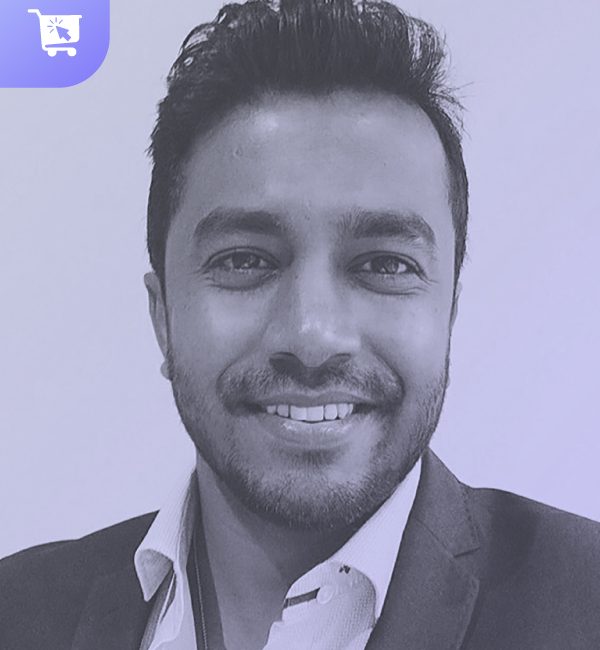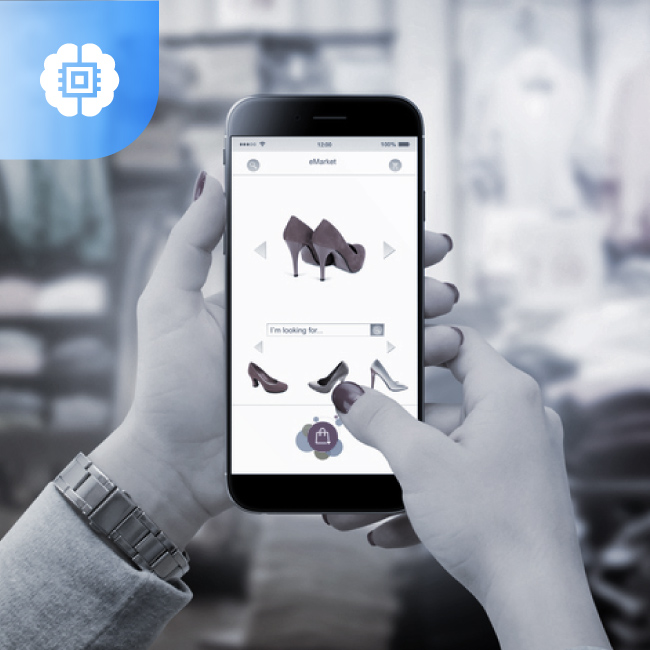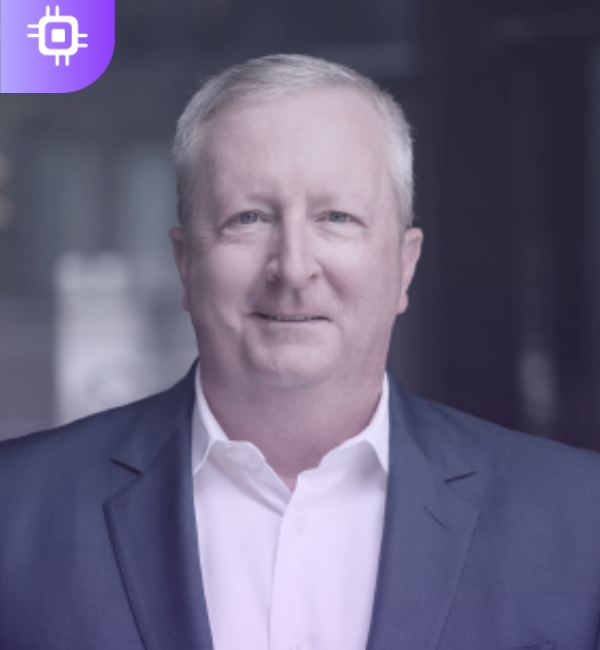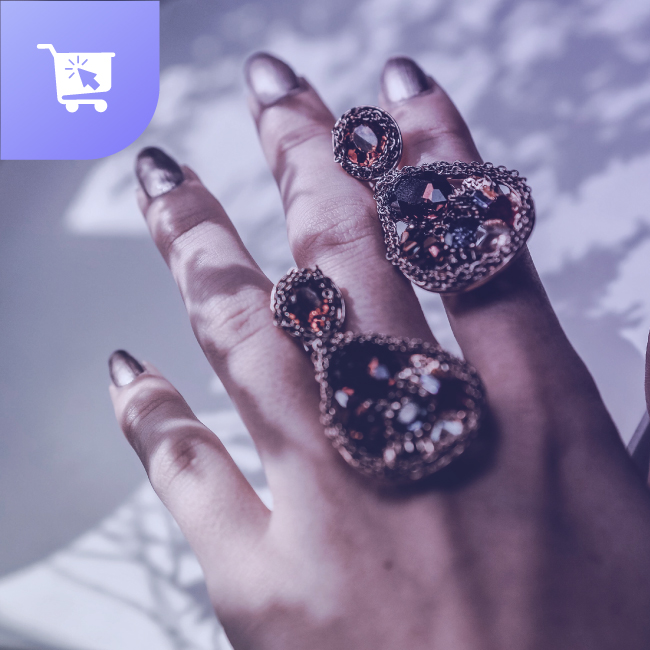
How Purple Style Labs is Remodelling Indian Luxury Fashion
About this Podcast:
In this episode, we’ve got Abhishek Agarwal, Founder & Director of Purple Style Labs (PSL) joining us on our podcast.
With names such as Pernia’s Pop Up Shop, The Stylist, Wendell Rodericks and Hemant Trivedi, Purple Style Labs is at the forefront of India’s luxury market game.
Listen in as he delves into the depth of luxury fashion in a country as diverse as India and how it paves the way for an aspirational lifestyle and much more.
Episode Transcript:
Hi. We're back with another episode of the Retail Podcast by Vue.ai and I'm your host, Krithika Anand. The Retail Podcast leads the conversation on the retail landscape with a spotlight on emerging trends in tech. We speak with industry experts, leaders and trailblazers shaping retail as we know it today. I'm co-hosting today's episode with Shyam Ravishankar, Head of Content and Digital Marketing at Vue.ai.
Shyam RavishankarHey, everybody, let's welcome our guest for the day. We have with us Abhishek Agarwal, founder and director of Purple Style Labs. With names such as Pernia's Pop Up Shop, The Stylist, Wendell Rodericks and Hemant Trivedi. PSL is at the forefront of India's luxury market game. He gave up his lucrative career in finance to set up Purple Style Labs in 2015. Abhishek envisioned corporatizing leading Indian design labels under one platform that would act as an Indian luxury house, bringing together truly exceptional houses with an online and offline presence. PSL is creating your favourite destination to discover Indian designer wear in truly unique settings. Welcome to the retail podcast by Vue.ai, Abhishek. We're very excited to have you on board with us today.
Abhishek AgarwalThank you. Thank you. Yeah, we did it a couple of months ago, but we thought, you know, it's good to get the news out in the media. So we finally did it last month.
Krithika AnandWe're glad. Okay, so let's dive right into the podcast. Let's get to know a little bit about your background. So tell us, what was the reason behind the switch from aerospace engineering and banking to luxury fashion? How did you stumble upon the idea of building India's largest luxury fashion ecommerce marketplace?
Abhishek AgarwalSo, I mean, I'm not a typical engineer. I have not been the ones who have studied a lot or anything. I come from a business family background from the Eastern side of India. So at the age of 16, the only agenda was to shop. And what are you shopping? What are wearing? What are you driving? What are you riding? So I always have this interest towards fashion. Obviously, you live a very different kind of life inside an IT Bombay campus, but few knicks and knacks still existed during those five years. So when I joined Deutsche, I was always like, I always thought, I'll start wearing suits once I join a certain job. So being in banking, you know, I picked that up. Even during placements. I would have helped over 100 of my friends, shop for suits. So I had that affinity towards, you know, I have had that for a very long time now. But when I was leaving Deutsche and planning to start something on my own. So fashion was like the first choice. And even within fashion, I realized, you know, I don't want to focus on the mass side of clothing where I mean, you're making for a very large population out there. It would be better to focus on premium luxury and cater to a relatively smaller population. I believe it's easier to make money that way. So that is how the inception of Purple Style Labs happened in 2015.
Shyam RavishankarOh, wow. That's really interesting. You know, your journey in how you started shopping for your friends and what it became is really nice. That's quite a shift. And it looks like the Indian luxury fashion market is going places with your idea. All right. So let's talk about your growth with Pernia's Pop Up Shop. PSL has been quite the riveting success story. PSL has grown per year Pop Up Shop more than 30 times since the acquisition and have been scaling absolutely phenomenally and just recently have received funding of $10 Million in Series B. So tell us the things you did differently in how it has changed the face of luxury fashion in India.
Abhishek AgarwalSo when I started PSL in 2015, obviously it was a very small company. Then I used to work with 20 to 30 relatively younger designer brands to help them scale their business. After three years into the industry, I realised that the biggest challenge probably is not having a single one platform which is omni channel and selling not just the top designers but also the younger upcoming designers. And within a short window of a couple of months we ended up buying Pernia's Pop Up Shop Pernia's Pop Up Shop as a platform has been the pioneer in luxury e-commerce out of India. We have scaled it 50 times, obviously, but we got it at a certain pedestal where it was easier to deliver scale because sometimes the initial part of the journey can be tougher than the scaling part. I mean, they come with their own sets of challenges. So when we acquired in February 18, I think by then the monthly run rate was about million, million and a half dollars. Currently, we are at about $60 million of run rate in four years of acquisition. So yeah, I mean, we have not done anything special to scale it. Anybody in our shoes would have done the same set of things. Probably we might have done a delta, but then any other team. But I think the acquisition played a big role. In terms of the scaling that came after the next four years when you picked it was just an e-commerce platform. 75% of our business even then was international. Even today it's international. And what we realized, a lot of people in the domestic market are not shopping because they prefer to still have the offline store experience and they want to run that service offline rather than online. So we started with the first store in June. It's been four years. We currently are at 14 stores. These will be mostly on the luxury streets of the country. Today we are in seven cities, which is Bombay, Delhi, Calcutta, Hyderabad, Bangalore, and we just opened in Ahmedabad and we have one store in London as well on Grosvenor Street.
Krithika AnandWe're curious to know about sales overall vision. When we were reading about PSL, something really stood out for us. With PSL, you're not just selling a product but also paving the way for a lifestyle one aspires to have. Can you tell us how you create a memorable experience for shoppers in a way that makes them come back for more?
Abhishek AgarwalSo as I said, like as a customer, once you start shopping in a certain price bracket, it very quickly scales across categories. So you might start with having something for a wedding which you buy from us. But let's say you want to pick something in the casual wear range, which earlier you would have spent probably 2 to 3K INR, but now you want to spend higher than that. So you have options even for things like that. In the last three years have also expanded categories across men, home décor. We also have some gift stuff on the website. So what we have also done, we have constantly added more categories for the same set of customers to have more upsell when we are trying to serve them over a much, much longer period of time. So I think the variety is not just limited to category in womenswear, which is our largest category, but also have smaller, smaller categories by the side on the website which just give a customer more reasons and more options to pick from.
Shyam RavishankarRight. We love that. And, you know, you can create incredible experiences without tactical investments in the right kind of technology that can help shape the customer's journey, especially, you know, with such a wide variety. You have on your website across categories, you know, it's vital to shaping their journeys in a way that is best suited to them or personalized to them. With that, we thought we touch upon a little bit of the tech and how PSL is tapping into it. Indian designers are able to build strong equity among shoppers today, but it's a task to make it commercially viable in the long run. But PSL through Pernia's Pop Up and the stylist is facilitating a platform by connecting fashion stylists and designers directly to the consumers. This requires a good level of technology and operational efficiency. So tell us, how do you use technology in every step of the value chain and what are some of the exciting tech investments you've made and are looking to make going forward?
Abhishek AgarwalSo honestly, luxury mostly relies on the streamlining of the backend technology first. So when we entered this industry, we realized that it's extremely unorganised. Like even to the basic extent of probably operating Excel sheets is not what most designers prefer. So when you talk about technology in an industry that is unorganised, they are much, much more basic levels of technologies that need to be brought in place. So since that position has been over four years now, we would have built over 50 tools in-house in terms of our basic operations, right? From the products coming from the designer to the QC to the fulfilment to even linking subjective comments onto the platform so that it's visible to other people. Not all might look very simple, but to actually feed in the data from all the stakeholders on a regular basis becomes the challenge there. So over the growth journey, we have smoothened these tools in-house wherever it needs external technology, we have smartly integrated it, be it the recommendation we use from Vue.ai or the emailers or any of those simple techniques which have become more hygiene in the ecosystem. Now, we have ensured that they very smoothly integrate with our base technology so that the whole ecosystem is able to grow at a faster pace. Now, since we are going extremely faster than we anticipated, the stress testing of the technology also gets done by itself. So I think that we are pretty well positioned where we don't promote ourselves as a technology company. But honestly, you can't grow at 100% year on year if you are not technologically efficient at every step of the value chain.
Shyam RavishankarYeah, it's especially, you know, what you said about the first the hygiene checks and to make sure anything you invest in you integrates well into your tech stack. So important today. Of late, you know we are noticing this trend in the Indian luxury market where corporates are acquiring large portions of fashion brands. This has been a recent development in India but is also gaining a lot of momentum. We'd love to hear your thoughts on this trend.
Abhishek AgarwalWell, honestly, when I started PSL, most of the brands that promote or run the industry was extremely unorganised. So I always believe that India does have the potential to create not just one but a few luxury houses, which eventually will help in institutionalizing the whole industry as such. I mean, the same phenomena happen in the West, probably in the eighties, and nineties, when you saw the rise of LVMH. What these acquisitions have done globally 30, 40 years ago is that they ensured that a lot of these companies of brands, which had built a lot of strong brand equity with the customers but were not able to scale themselves as a business, institutionalizing brought that into the system. When we picked up Pernia's, obviously we were much smaller as a company and it's only grown during the journey. Reliance, Birla and the likes, given that they already have the capital, they have the resources. They went after the top ten designers, they have done a few acquisitions in that. I think all of this is only going to help the industry in the longer run. So if we are looking to grow this company over the next 30 years, whether we have four or five, ten, or fifteen IPS with us in the journey, it doesn't take anything away from what others are trying to do at the same time. If collectively, let's say, 50 brands over the next 20 years can become 1000 crore brands. That is what will become the base of the industry. I mean, the houses can always exchange hands on the brands. You have seen that in the past happening in the West more often than you can think of, but that is what it means. The brand will always last longer than the designer. Brands can be 100-year-old brands. They can reinvent themselves multiple times during that journey, so long as it is somebody's responsibility. So I think that is it's a key thing. Our industry is only 30, 35 years old, so we are yet to see a lot of this happening over the next ten years, which will ensure that the industry 100 years later when you compare it to the Western industry, it would be a sizeable number as well.
Shyam RavishankarThat's super interesting. You know, your analogy to LVMH and houses in the West. But more on the industry, what challenges do you think fashion and luxury e-commerce face in India specifically? What is the biggest challenge you see and how do brands overcome it?
Abhishek AgarwalWell, I think the first and foremost challenges that the companies have been run by designers who are often the business head, the MD, the CEO, they play all the roles, like they're just wearing different hats. Now, you can only do so much as a single person. Even when I bought Pernia's, I was a solo founder. The first thing I did was built up the team. So today there are around 30-40 people in senior management in the company. That is where we are able to grow that fast. Now usually that becomes the first challenge for any unorganised industry for that matter, not just Indian luxury fashion. So I think over the next ten years it will also be the key that we create a broader cadre, we create more people who are able to handle multiple steps and that value chain individually and are also able to grow them. And building these key resources as an industry will be one of the important things that all the houses need to focus on because they won't run themselves. You will need people to do it. And second, I think the biggest challenge is the underlying product itself. I mean, globally, the brands have moved beyond being couture to being more ready to wear have products. I mean, they're still very expensive. But so long as the product is extremely dependent on hand labor, hand skilled embroidery, there will be a challenge in terms of scaling the brand as a whole. So we are also actually trying to get into certain categories where the brand equities are strong, which will ensure that the products are more easily scalable because the end of the day you will have to sell more products to more customers to do more revenue. So when we acquired Wendell Rodricks, that was our intention. It is very different as a brand from what we sell at Pernia's. It's not your typical wedding wear it is a resort wear brand. It's it has a 30-year journey. Obviously, Wendell had very strong brand equity. So we are constantly expanding categories in Wendell to make it into a lifestyle brand so that it in itself, without any dependency on Pernia's distribution can become a 100 million brand in the next ten years.
Krithika AnandWow. This is incredible to hear with the idea of building India's largest luxury fashion marketplace. We'd love to hear your thoughts on the association with Vue.ai.
Abhishek AgarwalI know now Ashwini and Anand for, you know, almost three, three and a half years, we had bought Pernia, I think a year before we met Vue.ai. So I mean, it's new, right? Internationally, sometimes it's easier to execute certain technologies because you have enough depth on the data, both on the demand side and the supply side. This being an unorganised industry and, you know, extremely diverse set of categories of products. So to implement technology at the customer side in terms of recommendation and etc., it wasn't easy and I wasn't even sure if it's going to work. So, you know, I said, you know, let's, let's go ahead, let's test it out. Why don't you. So we did that and it's been three, three and a half years. We are extremely happy with the association and I think in the journey we have obviously bounced a few things, few thoughts. Even during COVID, there were a few ideas that were springing in our head. So we have explored much more than what we just currently use. And I think as the industry grows in India, there will be many such more use cases where such technologies can translate into many more platforms and categories. So I think it is not always copy paste across the globe. So the focus being on the Indian platforms, I think it's going to pay off a long way for Vue.ai for sure.
Shyam RavishankarCertainly, and we certainly hope so as well. So, earlier you spoke a bit about how you're building your team at PSL, right. When we spoke about challenges the industry faces. So tell us a bit about your team at PSL. What's the idea? What's the vision behind the team?
Abhishek AgarwalSo I mean, see we had a very simple approach from day one. We were classic outsiders. I mean, even the management, all five of us have nothing to do with fashion. So we approached every problem, you know, with a black mind. There was no baggage of thoughts that we're carrying for them. But what we have ensured, barring five of us, the rest of the team has been hired through the industry over a period of time in the last four years. The only difference is historically, probably they were looking at sectors which were pretty much promoter oriented where they had to take approvals for everything and the decision making was not decentralized. Given the fact that we want people to grow, we want them to learn and make mistakes, not an issue there. So that helped us setting up the next 30 people in the company who today would have learned on ground, who might have come from different backgrounds. But they have been able to catch up pretty quickly because at the end of the day, it's not a very difficult business to do. It just that you need to get the pulse of it and get going. So we have always believed in hiring people who come with a bit of experience, bit of enthusiasm and the willingness to take responsibility to do things. So I think that decentralized mechanism has worked for us, which allows us even to shift at times or tech product head to oversee the store business also. And that kind of flexibility only exists when around 30 people know the value chain in and out. We are not a business of depth. We are more a breadth business. So anybody who can, you know, know the flowchart internally, how the system works will be very easily able to switch on hats. And it also gives them a like they don't get bored in the world, right.
Shyam RavishankarYeah, very true.
Krithika AnandThis is amazing. We like how there's a lot of flexibility at PSL and how different people own different hats. So finally, what's on the horizon for Purple Style Labs?
Abhishek AgarwalWell, I think we are happy with the growth right now. We luckily are not the ones who have very aggressive capital on our cap table. And honestly, we have not even raised $25 million till date. So we are are completely capable of scaling Pernia's Pop Up Shop to 200 to 300 million run rate in the next 3 to 4 years. And at our own pace, it is obviously supported by a very strong demand. We today are the largest player in the space, probably larger than the second, third, fourth, fifth player combined. So that also gives us a bit of leverage to act fast, but we don't want to act too fast. Then what is needed out there in the system? Because end of the day the supply is not something that can scale exponentially, even though I mean honestly I don't believe it can scale in any consumer business, but in this business, not for sure. So we are happy growing it at a certain rate where we are able to double our sales in every two years. And that gives us enough comfort to ensure that the profitability is in place, the team is in place and it doesn't put anybody through an undue stress and at the same time delivering great returns for our investors. So I think the next three years we will be focusing on the business and over the next 20 to 30 years, sure, every two years we do look for one acquisition. But unless we can grow a business 100 X, we won't acquire them. That's usually been our strategy all the way. We don't like the spray mechanism.
Krithika AnandRight, fantastic. We're thrilled to hear all this? And we wish you the very best for what's to come.
Shyam RavishankarSo that brings us to the end of the section of the episode, but we're going to hold on to you for a little longer for a quick rapidfire session to get to know a lot more about you. Abhishek, are you ready for this?
Abhishek AgarwalYeah, sure. Let's go.
Krithika AnandOkay, let's go. What's your favorite cuisine?
Abhishek AgarwalIndian.
Krithika AnandWhat's your favorite series on Netflix right now?
Abhishek AgarwalHonestly, I don't watch things much on television, but I was not sure if Netflix or not. But I really liked the Chernobyl season in 2020 and I've watched that a few times, but I don't know.
Shyam RavishankarSo who's your role model and why?
Abhishek AgarwalWell, I think I read about Bernard Arnault a lot in general, because our journeys are pretty similar as an outside body, or just because it was part of one of his long term visions. He wanted to do that. He picked up LVMH's majority stake and then kept doing the same thing for over 30 years with different brands. I'm too small, too early in the journey, but whatever material I can find about how the deals were stitched and how the business has been growing, it's really interesting how LVMH has been built. So yeah, definitely I look up to him.
Krithika AnandThat's interesting. What's your favorite drink?
Shyam RavishankarYou stole my question.
Abhishek AgarwalInterestingly, I drink buttermilk a lot. Practically a teetotaler. I don't drink much, so I'm in that one right now as well.
Shyam RavishankarRight. So we know you love cricket. So who's your favorite cricketer and why?
Abhishek AgarwalWell, honestly, I mean, over the 20 to 25 years of watching cricket, I think it would be, I think Sehwag because I like that kind of approach, you know, the less approach being, you know, really going out there. So I think there is one cricketer. I mean, it's like I used to love him back till he lasted on.
Shyam RavishankarHis opening innings with like legendary.
Abhishek AgarwalAnd yesterday's Yadhav's innings was great the sun just yeah it was brilliant.
Shyam RavishankarSo. Quick question cricket again Dhoni or Kohli.
Abhishek AgarwalWell, Dhoni. I'm the captain right so.
Krithika AnandLove it. Great answers Abhishek. And that is the end of this episode on the Retail Podcast by Vue.ai. But we had a great time having you on our podcast and thank you so much for joining us. We'd love to keep hearing many more success stories about you and PSL.
Abhishek AgarwalDefinitely. Thank you for having me. Thank you, guys.
Krithika AnandFor Vuu.ai, this is Krithika Anand and Shyam Ravishankar, stay tuned for your dose of all things retail and AI until next time.
Shyam RavishankarBye bye.
Krithika AnandYeah. Yeah, that's really interesting to know, Alex. And absolutely right. The future of retail is shaped heavily by and we're happy to be able to influence that to really be part of this change. I think, you know, we've covered quite a few different areas that we wanted to talk about. But before we get to the end of the podcast, it goes without saying that we are we are absolutely ecstatic about the incredible relationship that we share with you. And so why don't you tell us a bit about how the association has been for you so far?
Meet your speakers:
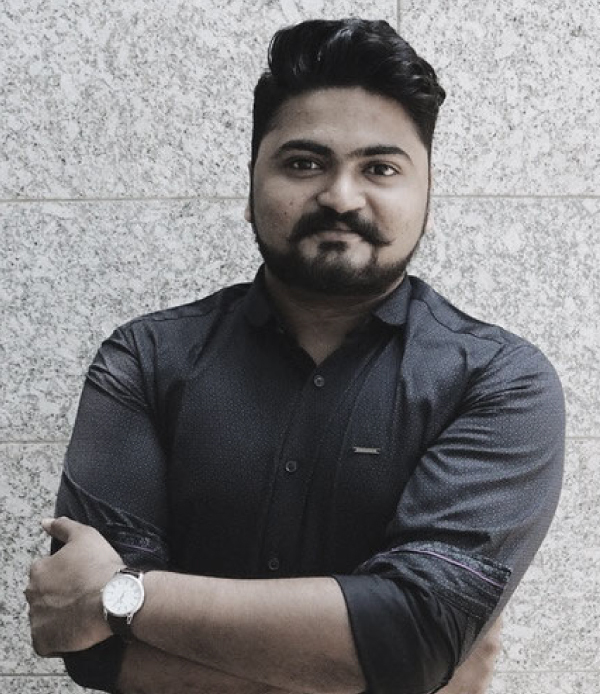
Shyam Ravishankar
Manager - Digital & Content Marketing
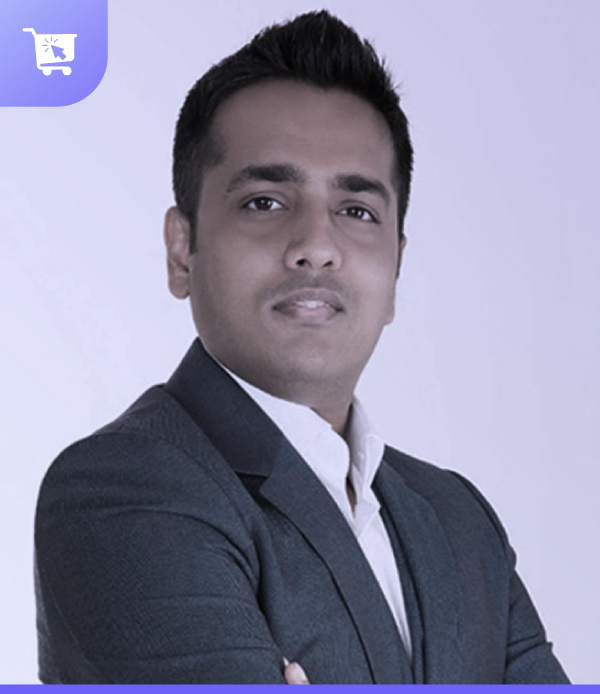
Abhishek Agarwal
Founder & Director, Purple Style Labs
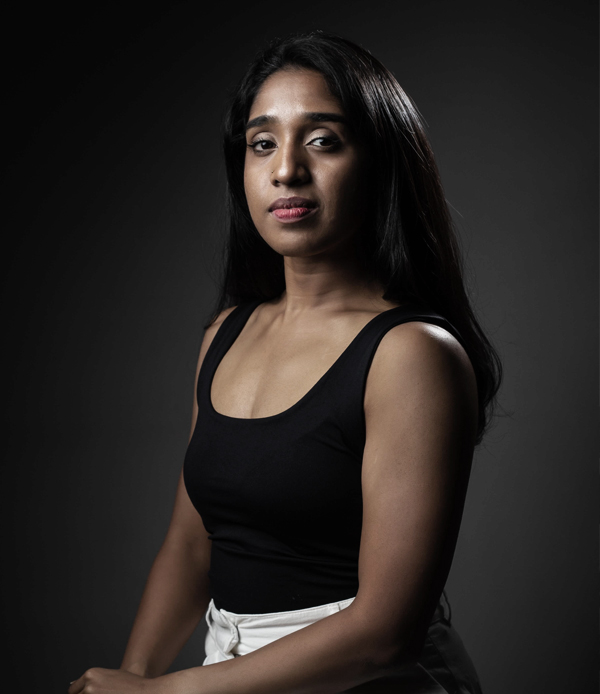
Krithika Anand
Customer Marketing, Vue.ai


